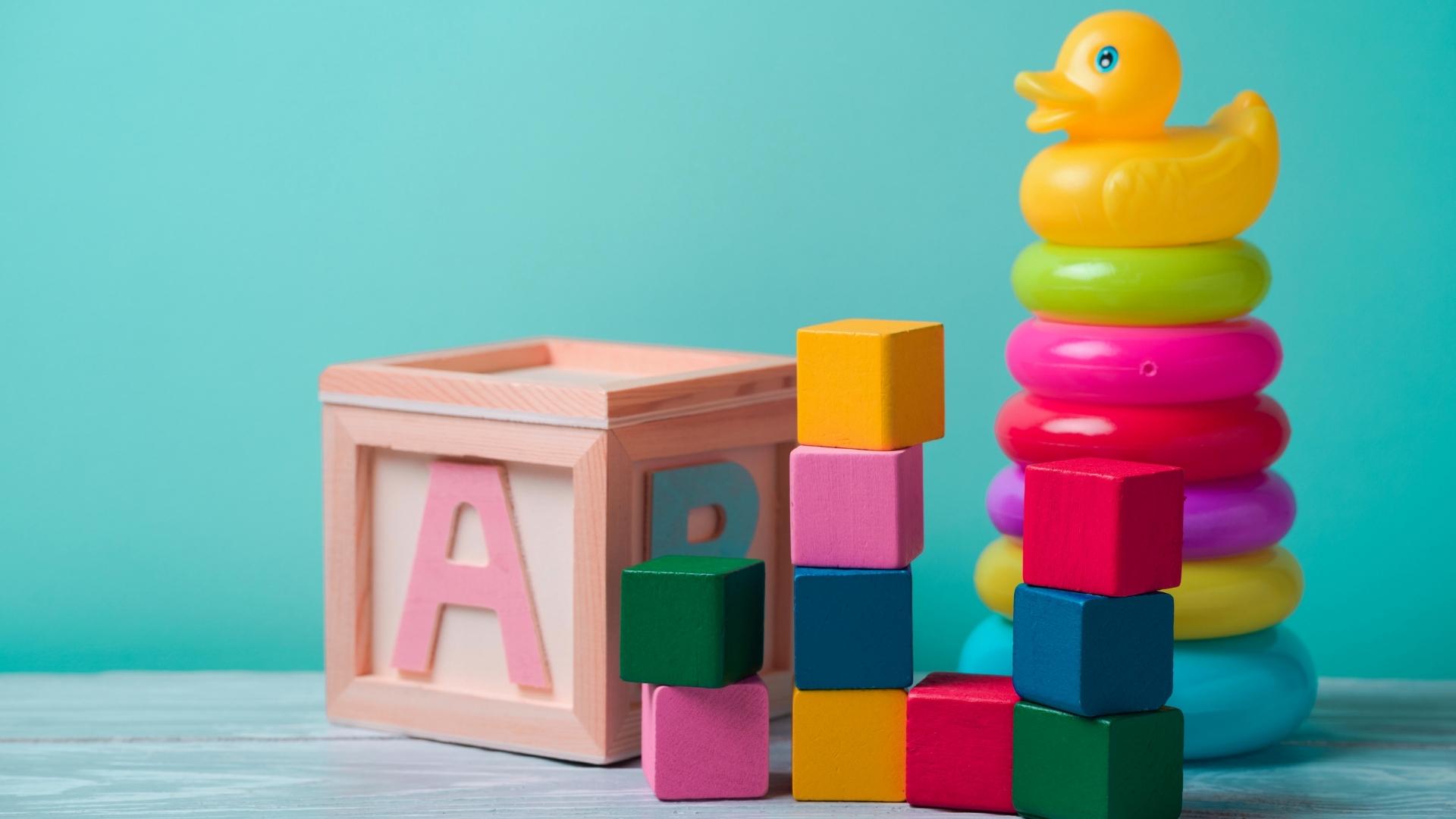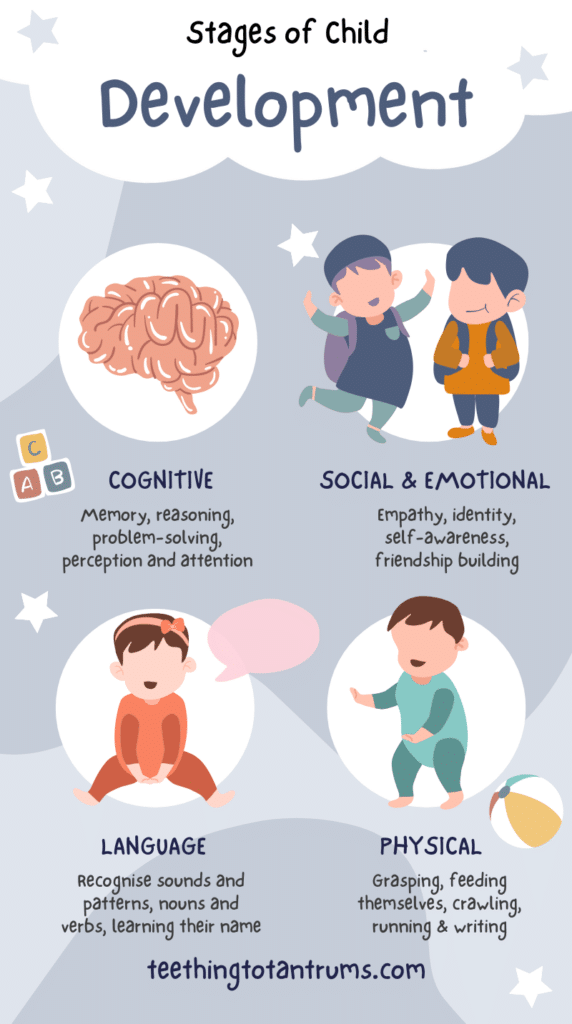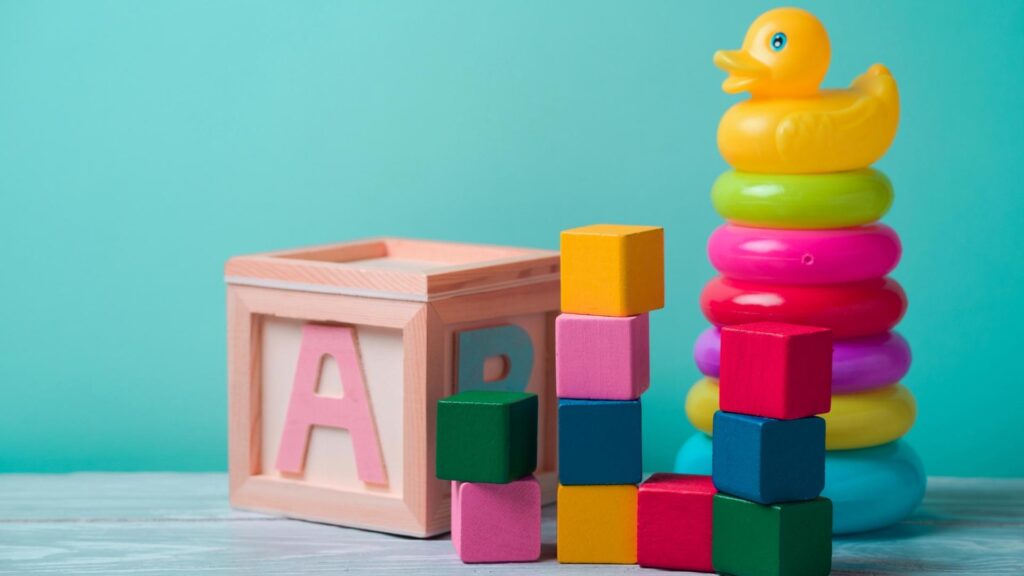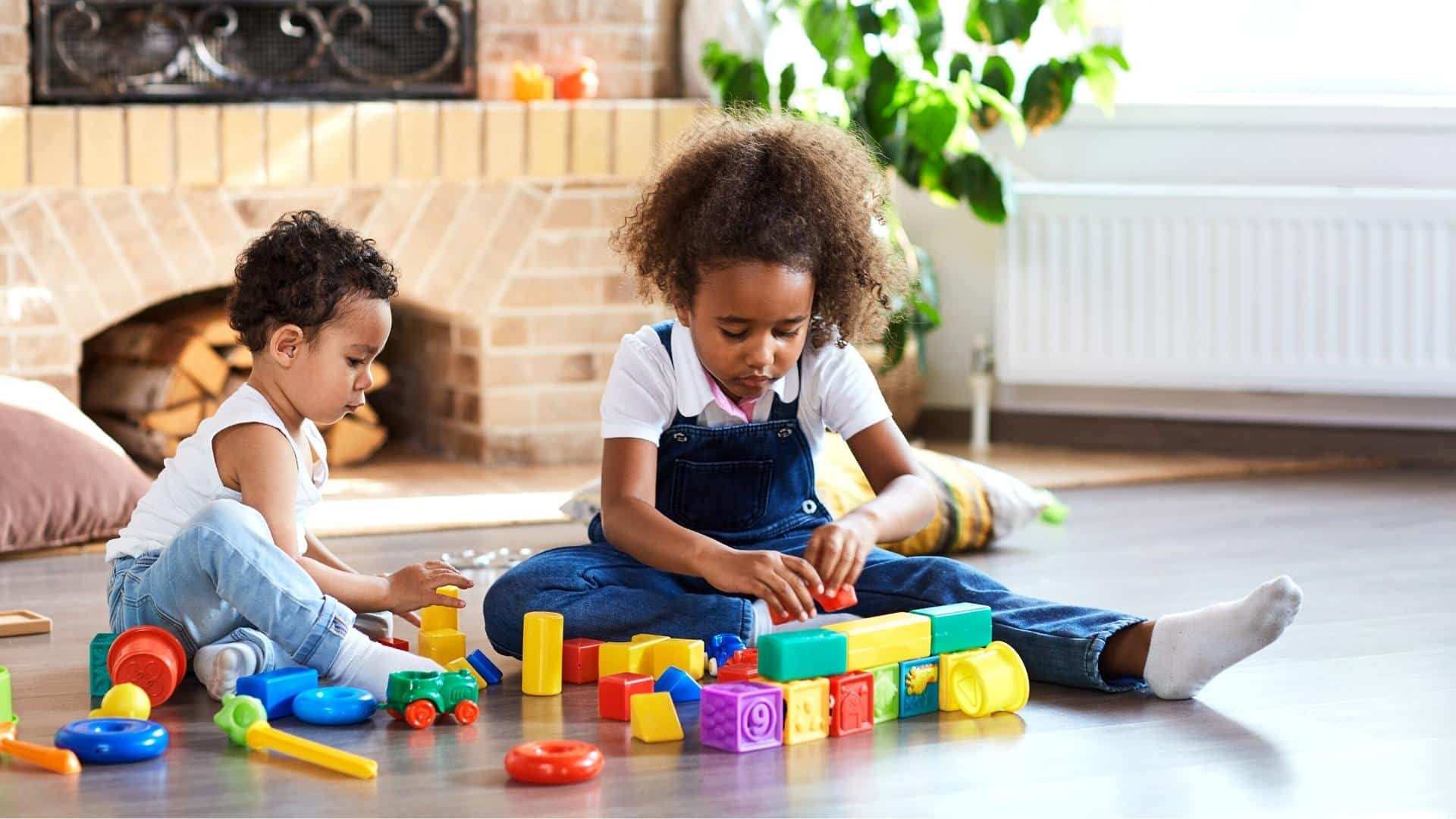Unlock the secrets of early childhood development and witness the incredible progress your child can make from birth to preschool. As parents, we all want to give our children the best start in life, but how can we ensure that they receive all the learning opportunities they need to excel intellectually, emotionally, and physically?
Join us on a journey of discovery as we explore the fascinating world of child development and share practical tips for supporting your child’s growth and development every step of the way.

Table of Contents
What Is Child Development?
Child development is the physical, language, social and emotional changes that occur in a child from birth to adulthood. Development is strongly influenced by many factors, including genetics, environmental and social factors as well as an individual child’s ability and desire to learn.
The 4 Types Of Developmental Milestones
Child development can be broken down into 4 main areas. They are:

- Cognitive
- Social & Emotional
- Language
- Physical – Fine motor skills and Gross motor skills
Each of these areas of development progress goes hand in hand with the others and many play opportunities will encompass more than one category.
Healthy child development is where children of all abilities are able to flourish in an environment where all their emotional, physical, emotional and educational needs are met.
1. Cognitive Milestones
Cognitive development is a critical aspect of your child’s development. It encompasses all the mental processes that your child goes through while growing up, such as memory, reasoning, problem-solving, perception, attention, and language development.
Infants have limited memory capacity, but by 6 months, they can remember familiar faces and objects, and by 12 months, they start to understand object permanence (which is the concept that objects continue to exist even when they are out of sight).
As children grow, they also begin to develop the ability to solve problems on their own.
They start to explore their surroundings, experiment with objects, and learn from their experiences.
And by the age of 4 years, children start to understand how to solve simple problems, and by 7 years, they can solve complex problems with multiple steps.
Attention is another essential cognitive skill that children learn as they grow. It involves the ability to focus and maintain attention on a task.
Infants have limited attention spans and can only focus on a task for a few minutes. However, as they grow, their attention span increases, and they can sustain attention for longer periods.
This skill is essential for academic success as it supports learning and memory.
2. Social & Emotional Milestones
Social and emotional development form a fundamental foundation of child development as it shapes the way children interact with others and the world around them.
In the early months of life, babies depend on you for survival and need to form strong emotional bonds for their well-being. As they grow up, they begin to develop attachments to other family members, friends, and adults they encounter.
At around 2 years of age, many children demonstrate a strong sense of self, and they begin to identify themselves by their name, gender, and physical attributes, such as hair or eye colour which is an indication of their growing self-awareness and sense of identity.
This milestone ties to the development of empathy, which is the ability to understand and share others’ feelings and perspectives.
Another notable social and emotional milestone is developing social skills and friendships.
Children begin to progress through the stage of playing with others and form friendships around age 3, but it becomes more complex as they grow.
By age 6, children begin to understand many social situations, such as taking turns and sharing, and they will become more sophisticated in their interactions with their peers.
At the same time, children will also develop a sense of morality and understand right from wrong.
3. Language Milestones
Language development is yet another crucial milestone in your child’s development and growing communication abilities.
Language milestones refer to the expected stages of language development as children grow and learn to communicate with increasing complexity and ease.
- During the first year of life, babies begin to recognize the sounds and patterns of speech.
- By 6 months, they start babbling and imitating sounds.
- And by 1 year, they start saying their first words, typically consisting of nouns and verbs.
As children approach their second birthday, their vocabulary rapidly expands, with the average two-year-old able to understand and use around 200-300 words.
This is also the stage where children start to combine words to form simple sentences. And over time, their sentences will become more complex and grammatically correct.
Between 3 and 5 years old, your child’s language skills continue to evolve at a rapid pace. They begin to ask more complex questions and engage in longer conversations.
Their language style will also become more refined and varied, with the use of descriptive language and storytelling.
REMEMBER: Language development does not occur at the same rate for all children. Some children will start babbling from 9 months, whereas others won’t say anything until 18 months when they suddenly say a string of words. It is important for you to monitor your child’s language development and seek professional help if you have any concerns.
4. Physical Milestones
Physical milestones are the most apparent aspect of child development and include both fine and gross motor skills. The difference between these skills are the type of movements completed.
Fine motor skills include grasping a toy, holding a crayon, and feeding themselves. Whereas, gross motor skills include the ‘bigger movements’ such as learning to balance, crawl and walk.
And from the moment they are born, your baby will begin to develop their physical abilities…
Starting with basic reflexes like sucking and rooting going all the way to holding their head up, rolling over, crawling, and eventually walking, jumping and running…
Feeding themselves, reading a book by themselves, climbing trees and writing their name.

4 Important Factors That Influence Child Development
As humans, we will continue to develop and evolve throughout our lives, but the most crucial period of development is in the first few years of life.
However, not all children develop at the same rate or follow the same developmental trajectory.
In fact, there are several factors that influence child development and can impact the pace and nature of our child’s growth:
1. Genetic factors. Genetic factors play a huge role in determining a child’s physical characteristics, such as height, weight, and overall health. Children may inherit genes that predispose them to certain conditions, which can impact their development. For instance, a child with asthma may experience frequent respiratory infections that hinder their physical development as they were unable to run around as much.
2. Environmental factors. Environmental factors include a child’s living conditions, access to nourishing food, safety, and hygiene. Children growing up in unsafe environments may experience significant developmental delays in areas such as cognitive, emotional, and social development as they are unable to explore these developmental areas in a safe way. Similarly, children living in poverty may experience food insecurity, which can impact their physical growth and cognitive development.
3. Physical activity. Engaging in physical activity can improve a child’s gross motor skills, strength, and endurance, ultimately fostering healthy growth and development. Physical activity also has many positive effects on a child’s emotional well-being, promoting self-esteem, and reducing the risk of developing anxiety or depression later in life.
4. Positive influence. Children that lack parental support may experience emotional and cognitive delays that hinder their growth as they will not feel supported or inspired to continue to learn. On the other hand, children that receive affection, attention, nurturing and encouragement from those around them are far more likely to experience a positive developmental journey.
Looking to get your little one to sleep quickly and effortlessly? Check out my Bedtime and Nap Cheat Sheet and master the art of making daytime naps and bedtimes as seamless as possible.
A bedtime & nap cheat sheet so good your little one will ask you to put them to bed...
Laura Williams "This is a life saver! I'm so glad I downloaded your bedtime & nap cheat sheet. My little one actually asked me to put him to bed last night! Unbelievable! Thank you so much!"
Click Here For The FREE Cheat Sheet
The 7 Fundamentals of Child Development
Child development can be a very daunting topic if you have never experienced or learnt about it before.
Therefore, I have split child development into the 7 fundamental core principles that you should be aware of to ensure your little one is reaching their developmental milestones and to give them the best opportunities to thrive.
1. Know What To Expect
Knowing what to expect as your child develops is very important… Especially as all children are unique in their learning.
Most will follow a similar sequence especially when it comes to physical development, but as long as your child is developing within the normal healthy parameters then they’re doing great.
But always remember, if at any point you are concerned about your child’s developmental progress… consult a medical professional.
Usually, there is nothing to worry about but setting your mind to rest is what is most important in order for you to move forward.
TOP TIP: Check out my Free Magic Milestone Method EBook here to better help you understand baby’s developmental journey.
2. Professional Monitoring
Being well-informed about what your baby should be doing on their developmental journey is always good, but having the comfort of professional developmental monitoring assessments along the way is also very important.
The assessments that your child receives in the first two and half years will give your reassurance that your little one is doing fine and that if there are any concerns you can discuss them and if need be have them addressed.
What To Expect From Child Development Assessments
Developmental milestone assessments start immediately after birth where your baby will undergo a thorough newborn physical examination.
Between 5-8 days later your baby will have a heel prick test to screen for sickle cell disease and cystic fibrosis and soon after birth, your baby will also have a hearing test.
In the early weeks, there will be a lot of focus on healthy weight gain and how successfully your baby is feeding but there is always support on hand to help you through this time and establish a stable and healthy feeding plan.
Further developmental checks will be carried out at 10-14 days after birth… then again at 6-8 weeks where vaccination schedules will be discussed.
You will then be offered developmental checks at 9-12 months and 2-1/2 years of age and in some cases, an 18-month check is also available.
Make the most of these opportunities to discuss your child’s development with a professional because if there are any issues… early detection is always best.
NOTE: One of the most well-known developmental milestone trackers is the Ages and Stages Questionnaire (ASQ), which is used by health practitioners to evaluate all aspects of development and highlight any development concerns. You can view a sample questionnaire here.
3. Don’t Compare And Compete
As parents, it is normal for us to want our children to be the best.
However, comparing your child to another is never advisable as everyone is an individual, with unique characteristics, strengths and weaknesses.
To be human is to be imperfect and your child is no exception.
Acceptance, patience, love and understanding are all that are required from you as a parent.
As well as offering your little one all the opportunities you can to learn and develop in a safe, non-pressurised, nurturing environment.
TOP TIP: Cherish every moment with your child from the first smile, first word, first drawing that they proudly show you. Make them feel cherished, loved, and worthy and give them a strong sense of self. If you do all these things you will be setting your child on the road to being the best that they can be.
4. Make Learning Fun
In order to encourage healthy child development, it is important to make learning fun.
Every word you speak and every experience you share with your young child contributes to their all-round development. I cannot stress how important learning through play is for your child.
From the day they are born… your little one will be embarking upon a wonderful journey of learning about their own bodies and what they can do, as well as learning to understand the world they live in and the people they share it with.
5. Offering Opportunities To Learn
In the early weeks, the stages of development in babies focus primarily on the senses. Their sight, hearing, sense of touch and smell are all primed for their survival and growth.
Your facial expressions and the sound of your voice are their main focus… as is their reliance on you for food, warmth, nappy changing and general comfort.
Playing your baby by doing things such as talking in an animated fashion, telling them what you are doing as your dress them and singing to them when you are feeding them are all fantastic learning opportunities for your baby.
Take them for walks and introduce them to their family and offer them opportunities to kick and move freely.
Even at a few weeks old you can show them books and toys specifically designed for newborns to stimulate your baby’s language, cognitive, social and physical development.
And as your baby grows, the opportunities to learn only get more frequent and exciting!
In fact, learning through play is the most obvious thing that springs to mind. And offering specific age-appropriate toys and activities is also essential to your child’s healthy development. Check out my list of the best development toys to get you started.
The trick is to include your little one in everything you do and treat the whole world as a learning opportunity!
REMEMBER: Utilise my Free Magic Milestone Method Ebook to get ideas of activities to play with your little one to help them reach their developmental potential.
6. Talk And Listen
Babies learn the most important elements of language in the first 12 months of life before they can even speak.
This fact alone tells us as parents how important it is for us to talk to our babies from day one.
In addition, setting aside certain times of the day for fully focused talking and listening is important. This is best done at mealtimes, bath time and bedtime.
I cannot emphasise the importance of introducing your children to the world of books and how beneficial it is for your little one’s development to include daily book time into their routine.
Not only do books improve language development but memory, imagination and emotional development too.
7. Introduce Social Interactions
When talking about the stages in a child’s development and reaching their developmental milestones we should not forget the importance of social interactions.
You can ensure that your child gets the correct amount of social interaction by talking, listening and taking an interest in what your little one does…
Then, when the time comes for your child to go to nursery school… They will have already been exposed to a variety of social situations involving other children of their own and different age groups, so they’re ready to take this next big step.
Nursery will continue the work you started at home with social play-based learning being a strong focus, especially if you choose Montessori Childcare which focuses very strongly on the principles of learning through play.
As a parent, you can support and take part in your child’s play activities but try not to direct what happens. It’s important you give your little one the time, freedom and choices in play!
Need More Parenting Help?
- Download our FREE Bedtime & Nap Sleep Cheat Sheet. It’s a free, easy-to-use and proven formula designed for parents of 0-5 year olds to master the art of consistently undisturbed and restful sleep without the yelling, nagging or exhausting long-winded evenings.
- Check out our Parenting Toolbox. You’ll get access to expertly-chosen products that you can guarantee are the best for your little one and your wallet.
- Are you looking for personalized guidance to navigate the challenges of parenting? I offer 1-on-1 consultations to bring you tailored strategies and actionable advice to help support your child's growth and well-being with confidence.

A bedtime & nap cheat sheet so good your little one will ask you to put them to bed...
Laura Williams "This is a life saver! I'm so glad I downloaded your bedtime & nap cheat sheet. My little one actually asked me to put him to bed last night! Unbelievable! Thank you so much!"
Click Here For The FREE Cheat Sheet

